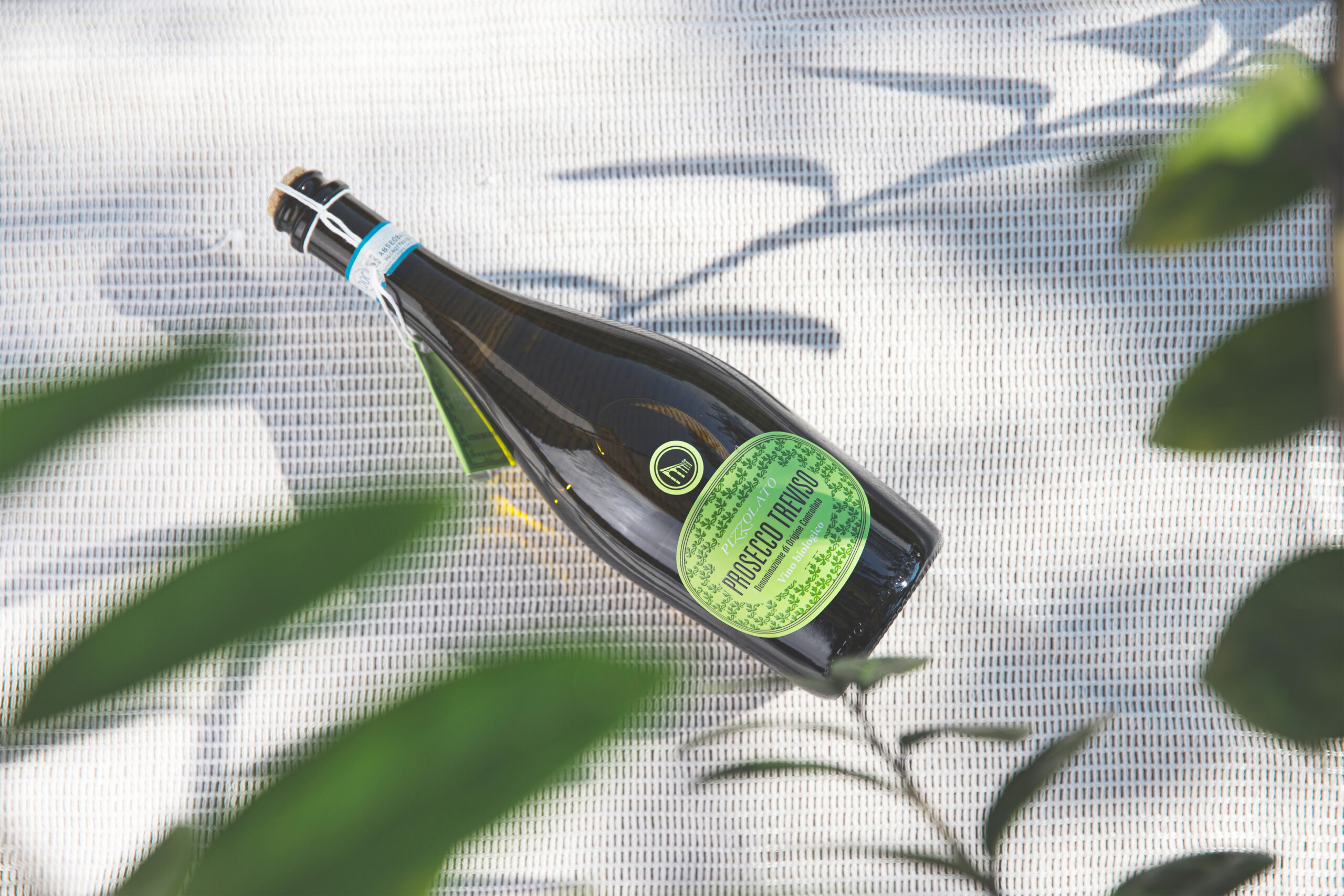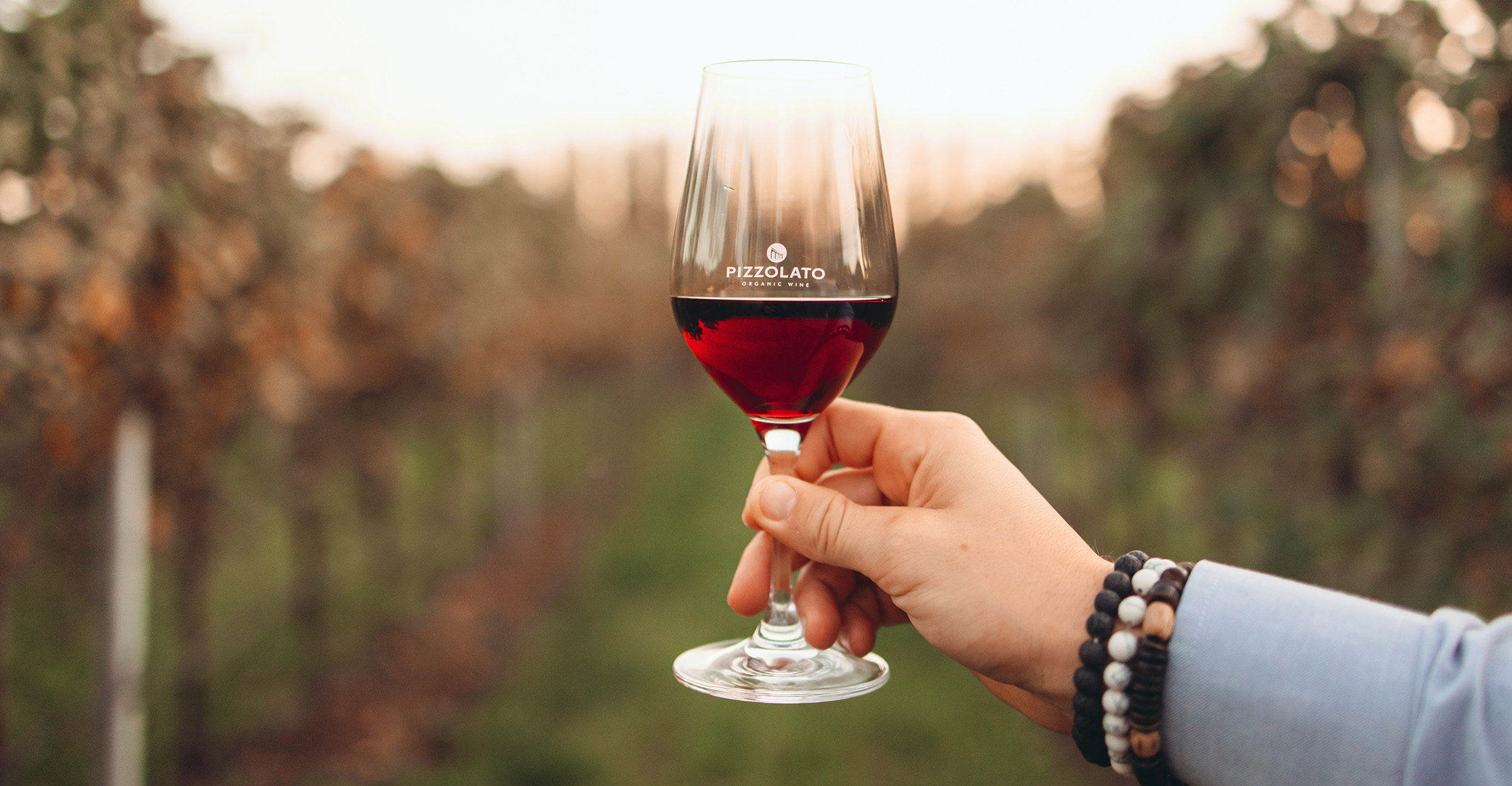As of 2012, with the entry into force of EC Regulation 203/2012, one can speak of organic wine and no longer of wine "from organic grapes" thanks to the possibility of certifying the entire process of winemaking and grape processing as organic.
Definition of organic wine
A wine is defined as organic when it comes from 100% organic grapes grown without the use of synthetic chemical agents in the vineyards while in the winery winemaking must be done with the limited use of sulfites and certified organic wine products.
Organic wine can be recognized by the presence of the EU logo on the label; a guarantee mark that certifies the entire wine production process. We at La Cantina Pizzolato have been committed since 1991 to guarantee our consumers the authenticity and naturalness of our organic and vegan wine. The aim is to offer a wine, which does not always require the use of sulfites, because it is a healthy wine that contains all the useful substances so that it can maintain itself.
Obtaining organic certification and the consequent possibility of affixing the relevant logo on the label is not a simple matter; companies are subjected to continuous and strict controls by competent bodies that attest to the companies' compliance with legal obligations; our certifying body is BIOS SRL of Marostica (VI).
Organic trends in Italy and abroad
The organic wine market in Italy is booming; not only is the number of companies interested in the organic method of production growing, but market demand is also going up, with consumers becoming increasingly attentive to what they consume and the impact the product may have on the environment and the ecosystem. In recent times, hectares of area planted with organic vines and in conversion to organic have increased dramatically and are expected to maintain this growing trend for a long time.
The increased propensity of consumers to demand organic products has convinced most wineries to market their wine by serving the channels of large-scale organized distribution. As of today, organic wine is readily available on supermarket shelves; consumers, therefore, have the opportunity to purchase these organic products no longer exclusively in specialty stores or directly from the producer.
The organic wine market abroad has now reached such a conspicuous share that it has become particularly attractive to many Italian organic wineries, which increasingly tend to project themselves into exports. The main countries to which we export our organic wine are: Northern Europe, especially Norway and especially Sweden where we hold a monopoly in the sale of our Prosecco DOC Extra Dry sparkling wine; Germany, which was the first market to welcome us in the late 1980s, when the organic vision was still in its infancy; the U.S., which is increasingly requesting our NSA WINES: Prosecco with no added sulfites; Merlot with no added sulfites; Rosso Convento with no added sulfites; Cabernet with no added sulfites for which we have USDA certification but also our organic Moscato and organic Pinot Grigio , NoOGM certified wines.
Why choose organic wine?
Organic wine is a completely natural and genuine wine that does not make use of synthetic chemical agents at any stage of the production process. The vine is cultivated in its habitat, with wild grasses growing around it, with a developed biodiversity. The plant is thus able to produce balanced fruit that expresses all the typical characteristics of the land in which it grows. Organic wine is a healthy, natural and genuine product that respects not only the environment and the ecosystem but also safeguards the health of those who consume it, the producer himself and those around us, as it is free of any chemical components within it.
Why does organic wine have a higher price?
There are numerous difficulties involved in growing an organic vine; difficulties that come up every day, especially when critical years challenge us and to protect the crop we must and want to use only natural products. This, however, always leads us to improve and give our best in every vintage to offer a wine that is 100% organic and healthy. Today's technology and the experience of our agronomists allow us to experiment with new cutting-edge products.
In order to naturally combat the diseases that can affect the vine, copper is the product that best fits this need; within the limits allowed by law. The vine is a plant that tolerates this natural component quite well, but it is still a product that disperses in the soil, which is why our research is devoted to studying alternatives and experimenting with resistant vines.
Organic wine has a higher price tag for consumers, but it should be seen as a guarantee of a natural, wholesome product that respects the environment and as a justification for the higher costs that wineries must incur to guarantee consumers all these qualities in order to offer a respectable organic wine.



